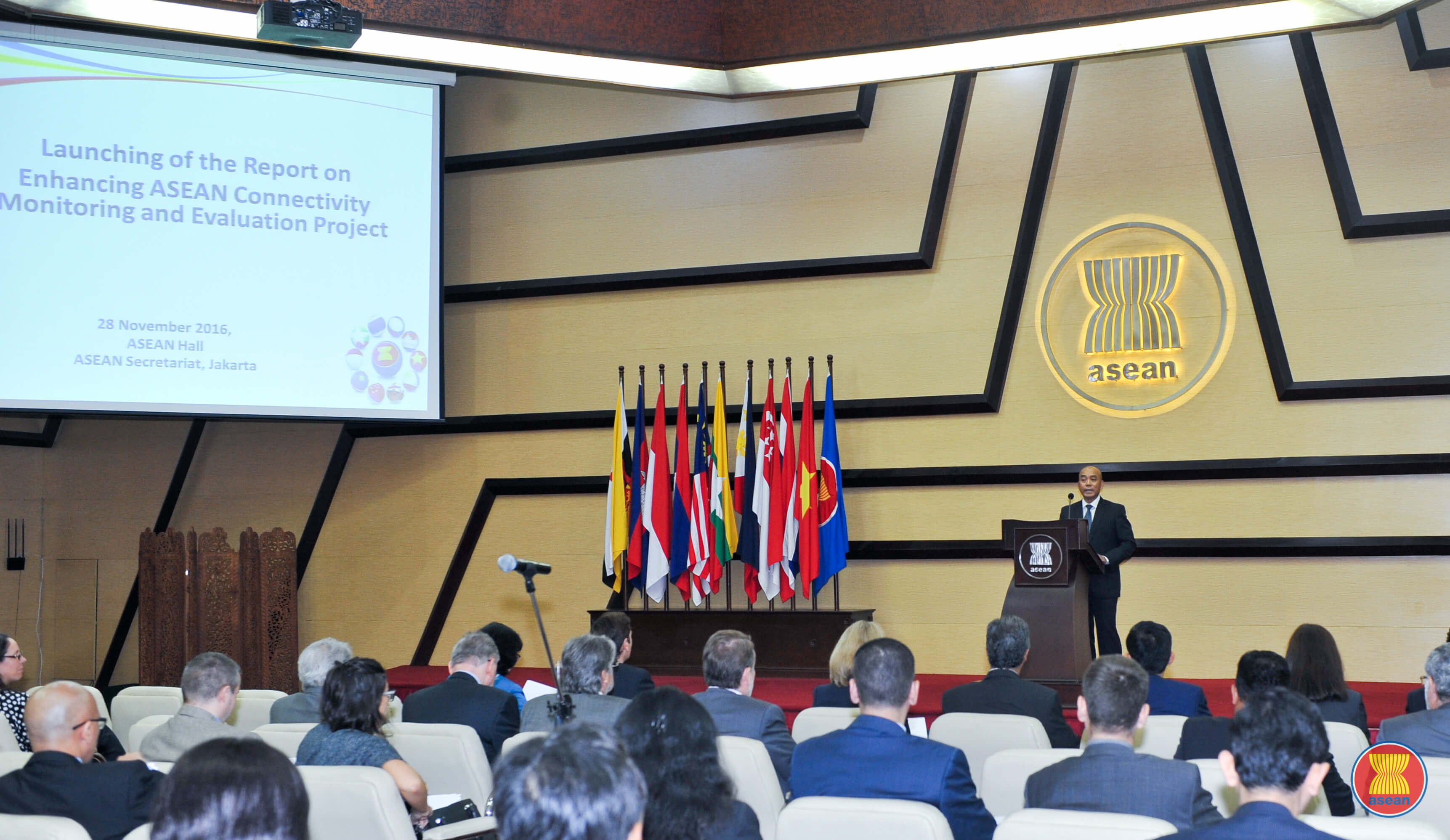
JAKARTA, 28 November 2016 - To effectively implement the recently adopted Master Plan on ASEAN Connectivity (MPAC)2025, ASEAN needs a robust monitoring and evaluation system. The report Enhancing ASEAN Connectivity Monitoring and Evaluation released today at the ASEAN Secretariat assessed the progress and achievements made in the MPAC 2010, drew out the policy implications, and outlined lessons for the future.
Since the implementation of the MPAC 2025 is one of ASEANs priorities, this report is a useful guide for a more comprehensive monitoring and evaluation mechanism that includes production and collection of robust data, development of indicators and assessment of impact.
Speaking at the launch, Ambassador Latsamy Keomany, Permanent Representative of the Lao PDR to ASEAN, Chair of the ASEAN Connectivity Coordinating Committee (ACCC) and Chair of the Committee of Permanent Representatives, said this comprehensive monitoring and evaluation mechanism provides a set of principles, approaches and tools which will help us on the direction we need to go, the outcomes we want to achieve and the impact we want to make for our stakeholders as we embark on the ASEAN Connectivity journey.
Australia has been proud to support ASEANs important Connectivity agenda through the development of this Report and MPAC 2025. The findings and recommendations of this Report will give us valuable insights and help ASEAN and its partners focus on effective implementation of the MPAC 2025, said Ambassador of Australia to ASEAN Elizabeth Jane Duke.
The launch event brought together members of the ACCC, Ambassadors of Dialogue Partners to ASEAN, representatives of the diplomatic corps and international organisations in Jakarta, and the ASEAN Secretariat. The report was prepared by the World Bank, in collaboration with the ACCC and supported by the ASEAN-Australia Development Cooperation Program Phase II.
